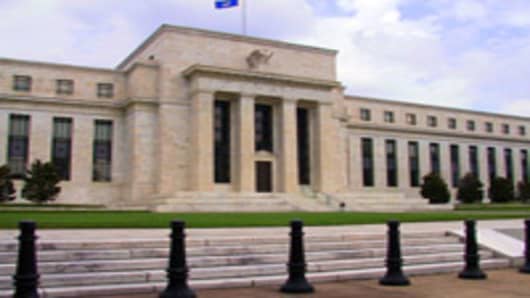US Treasurys may not be such a good bet for investors as yields have dropped too low and questions remain on whether the Federal Reserve will continue to print money after its current round of quantitative easing ends, analysts told CNBC.
Yields on 10 year Treasury bonds hover around three percent, having dropped below that mark last week and again on Wednesday.
"Government bonds should be avoided. Inflation protected yields are very low and so are the real returns from 'nominal' bonds without long-term deflation, which seems unlikely," analysts from international asset allocation firm Smithers wrote in a market note.
While inflation remains the traditional enemy of bonds, deflation poses its own risks and the bad economic data out of the US suggests the risk of deflation is a real possibility, other analysts said.
“My sense is that the Federal Reserve will want to avoid deflation at all costs and the spare capacity in the economy means that inflationary pressures are limited but this may ebb over time,” Jeremy Batstone Carr, head of research at Charles Stanley, said.
The slew of negative economic data at the start of the month saw bond yields fall, especially after the US Labor Department numbers showed unemployment up to 9.1 percent and nonfarm payroll data which showed employers added just 54,000 jobs in May.
Money Printing Unlikely
Some analysts say the economy will improve and further rounds of money printing will be unlikely.
"There is way too much pessimism priced into the US yield curve at present and an improvement relative to what has gone before us over recent weeks will likely send yields higher (of course events in Greece may change that) on economic data grounds," Derek Halpenny, European head of global currency research at the Bank of Tokyo-Mitshubishi UFJ, wrote in a research note.
Carr dismissed the notion that as yields fall on bonds so stocks should rally.
“People talk about the relationship between bonds and equities but it’s a bit like comparing apples and oranges," he said.
"I don’t take the view that if bond yields are falling so equities should rise.
I also don’t think that low yields should be associated with being a flight to safety,” Carr said.
With the summer break near, banks' position regarding risk will be crucial, Tim Skeet, an economist at RBS, said.
"We’ve had a very difficult week, from a fixed income perspective some yields are getting down some yields are not getting down," Skeet said.
"It’s a very uncertain time whether yields as low as they are represent good value." "You want to put your money where it’s not going to blow up but you have got some real risk factors out there, some sovereign borrowers out there are coming back to the market," he added.
Stocks would have to go much lower for the Fed to consider a third round of asset buying, Bahnu Baweja, head of research and EM strategy at UBS, told CNBC.
“I don’t think we will see a double dip in the US, I expect to see a little more downside in the yield but not significant falls," Baweja said.


